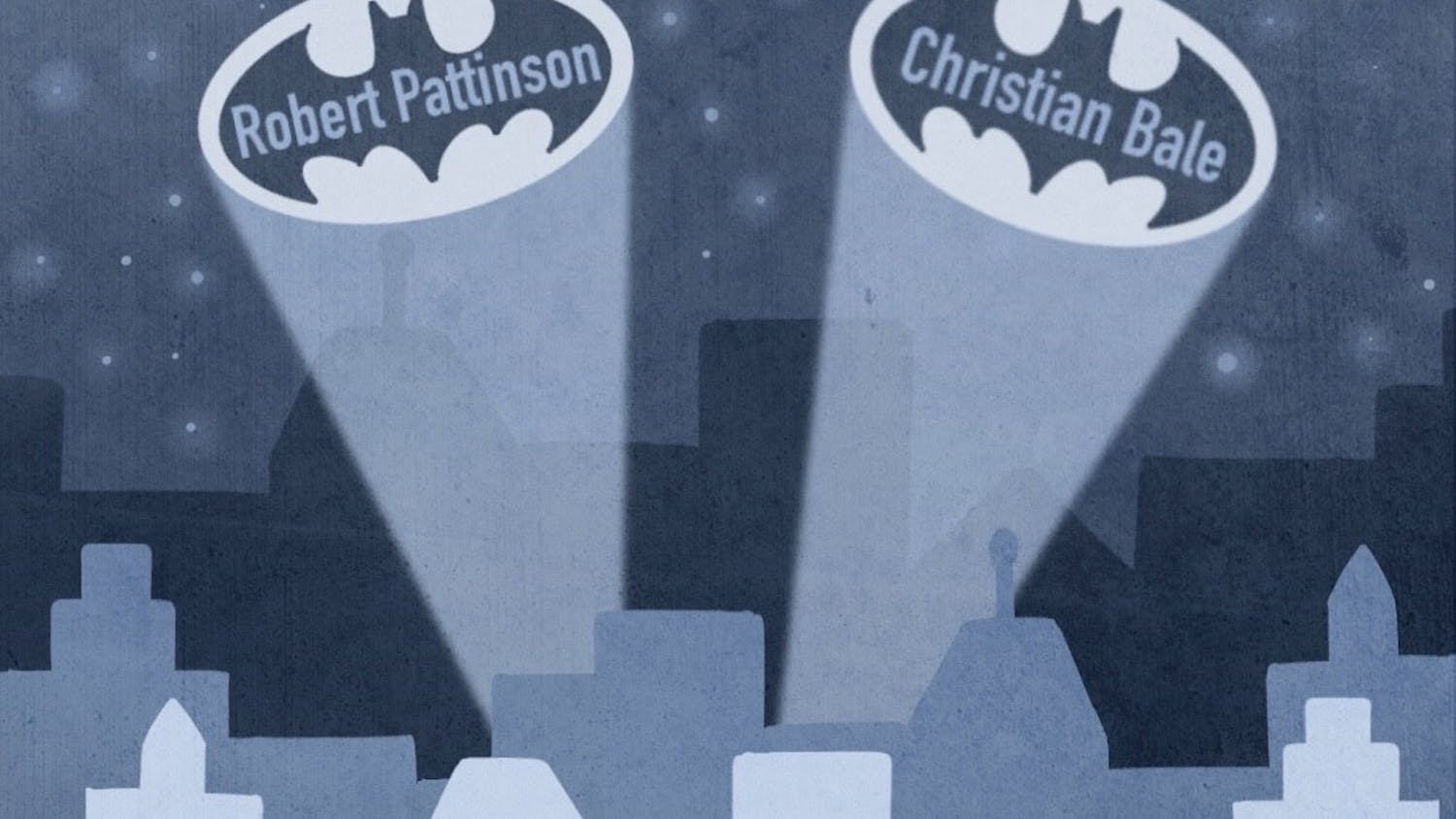Love it or hate it, this film presents a never-before-seen motion picture portrayal of the iconic Batman supervillain.
"Joker" premiered at the Venice Film Festival in September and waltzed out with the festival's biggest prize, the Golden Lion for best film. This immediate acclaim was soon followed by debates over the film's dark themes, causing theaters to ban fans from dressing up to see it. Despite the controversy, “Joker” broke the U.S. box office record for October openings — debuting with $93.5 million in domestic earnings.
Joaquin Phoenix plays Arthur Fleck, a clown for hire who has never had a good break or happy day in his life. His growing indignation pushes him over the edge, from social outcast to mass murderer.
Arthur lives a pitiful existence on the dangerous margins of society. When he is not making people uneasy with his uncontrollable laughter, which is induced by his anxiety, he kills time at his thankless job or in the dimly lit shoe-box apartment he shares with his mother. As the film goes on, his childlike questions and contemplations about humanity's cruelness boils into a deep-seated contempt.
Arthur’s rail-thin body seems to grow weaker and increasingly fatigued as his character faces heart-crushing rejections. His uncontrollable laughter looks as though it physically pains him. His misery is etched on his deeply creased face. This changes as Arthur begins to look healthier and livelier as he transitions into his Joker persona.
Gotham City is a wasteland in this new incarnation. Director Todd Phillips, best known for "The Hangover" trilogy, and cinematographer Lawrence Sher create a Gotham that bears an uncanny resemblance to the grittiness of New York City in Martin Scorcese's "Taxi Driver." Instead of Robert De Niro delivering lines about his disdain for the city’s people, it’s Phoenix.
The film’s brightest move was casting Robert De Niro to play a famous talk show host, closely resembling Jerry Lewis' character in Scorsese's "The King of Comedy." In the film, it was De Niro who was the talentless comedian who attempts to breathe the same air as his idol. Now, the roles are reversed, and he is the one in the big chair looking at an obsessive fan.
Phoenix’s Oscar-worthy performance leaves nothing to be desired. He completely embodies the darkness of Arther Fleck's collective life experiences. His changing moods make for an unnerving viewing experience. Phoenix's role features a lot of physicality; he lost upwards of 50 pounds in preparation for the film.
For the entirety of its over-two-hour runtime, “Joker” is clouded by the dark wish fulfillments of its central character. Arthur’s delusional thoughts are presented as they would be in his mind; leaving viewers to question what is fantasy and what is reality. For a movie about one of fiction’s most unreliable narrators, audiences should expect nothing less.
"Joker" is shot gorgeously and submerges the viewer into the murky waters of this character's subconscious. Phoenix gives a performance that can undoubtedly contend with every on-screen version of the infamous supervillain. Furthermore, the cello-heavy score, by Hildur Gudnadóttir, does a great job of making suspenseful scenes even more nail-biting. The penultimate climax, where the chaos really unfolds, features a great payoff to the momentum that had been brewing since the opening scene.
In terms of morality, "Joker" does not attempt to spoon feed viewers a side to take, as is the case in Christopher Nolan's trilogy. In Nolan's adaptation of the iconic villain, the Joker was a philosophical agent of chaos whose mission was to prove how inhumane humans genuinely are. Nolan took a firm moral stance with his films, which was put on display when the criminals and working-class people of Gotham refused to blow each other up. This resolution served as proof that the Joker is ultimately wrong about humanity.
Phillips’ "Joker," on the other hand, is not as black and white; the viewer is forced to have conflicting thoughts on each character. There are no clear “good guys” or “bad guys.” The people of Gotham are just as terrible as the villain. A social worker paid to at least "pretend" that she cares about Arthur's well-being could not care less. A mother snaps at Arthur for attempting to make her child smile by making funny expressions. Arthur's talk-show-host idol turns out to be just as smug as the elite businessmen who jumped him, and his "caring" mother is revealed to be quite the opposite. Gotham is overflowing with wealthy, middle-class and poor people who are all looking for any excuse to tip into cruelty.
“Joker” is an allegory for what happens in a society where cruelty reigns and empathy is forgotten. This film may ask viewers to empathize with its central protagonist, but it doesn't ask us to forgive Arthur for his increasingly evil actions. The film knows he is deranged and should not be romanticized, but merely understood. This is a testament to Phillips’s sharp direction, and Phoenix's emotional performance.
"Joker" is a film that is completely open to interpretation. It offers no easy answers to the unsettling questions it raises about a cruel society in decline. The film has clear inspirations, and sometimes they can be so glaring that they momentarily blind the viewer. Nevertheless, Todd Phillips does a great job in carving out his own space in the oversaturated anti-hero movie market.
In a world where comic book adaptations are a dime a dozen, at least "Joker" begs you to ask questions.
Prerequisites: "Taxi Driver" and "King of Comedy"
Score 8/10
Joaquin Phoenix as Arthur Fleck in Warner Bros. Pictures, Village Roadshow Pictures and BRON Creative’s tragedy “JOKER,” a Warner Bros. Pictures release.






